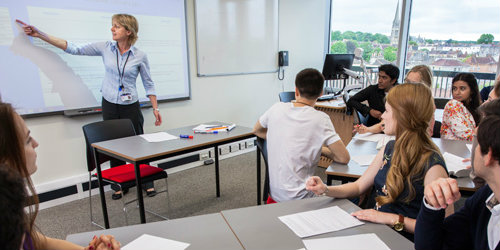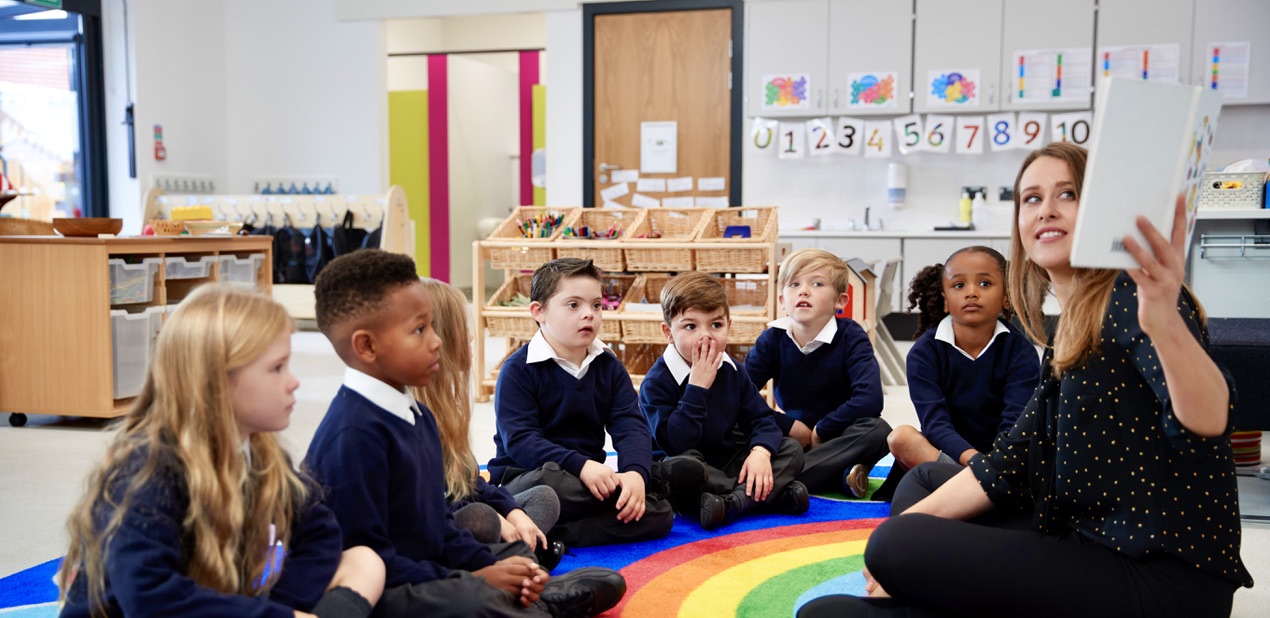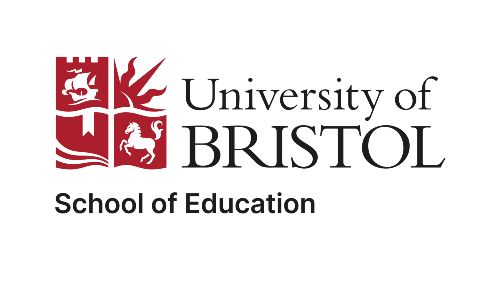Promoting oracy in educational settings
A knowledge-exchange programme between the University of Bristol and educational settings in southwest England is developing practice to support children’s oracy.
The challenge
Developing the oracy skills of all children is key to raising attainment, improving wellbeing, and reducing inequality. Funding cuts and Covid-19 have exacerbated long-standing social and educational inequalities. In this challenging context, universal language interventions can transform language learning environments, and support practitioners to prioritise oracy in their settings.
Research impact - An evidence-based approach to improving oracy
The evidence-informed ‘Supporting Spoken Language in the Classroom (SSLiC) Programme’, developed and led by Dr Ioanna Bakopoulou, was first developed at UCL, Institute of Education, in 2016 (Centre for Inclusive Education). Now based at the University of Bristol, it responds to rising concerns about the limited oral proficiency of many children entering formal education in the UK. Children from disadvantaged backgrounds or who are English language learners are particularly likely to experience difficulties with speech, language and communication. Difficulties with spoken language can have significant and persistent impacts on academic achievement and socio-emotional functioning; the SSLiC Programme takes a collaborative approach to promoting oracy in schools to improve outcomes for all children.
During the 2022–2023 academic year, researchers from the University of Bristol collaborated with 20 early-years settings and primary schools in two local authorities (Bristol and Plymouth) in southwest England. Working with educational practitioners, researchers shared research evidence about universal approaches and support to enhance spoken language skills. Using principles of effective professional development and learning, tailored to the needs of each setting, the research team supported practitioners to implement and sustain changes to their setting’s provision to improve oracy. These included making changes to their School Improvement Plan and the inclusion of oracy development as a key school priority, changes to the system of how children's speech, language and communication needs are identified within the school, and changes to the professional development and support systems provided to staff (both teachers and teaching assistants). Two thirds of the settings have continued their involvement with the project this year.
As one participant acknowledged, when the SSLiC Programme began working with the settings in Bristol and Plymouth, the Covid-19 pandemic had exacerbated an already challenging educational context for developing children’s oracy skills:
"We’ve noticed over the past few years a distinct drop in children’s spoken language and their understanding because of the pandemic." - (Interview participant 3)
The SSLiC Programme worked with settings to provide them with the necessary research evidence, resources and tools to meet the escalating need to support children’s oracy. The SSLiC Programme contributed to an increase over time in children’s learning engagement and an improvement in the quality of classroom language learning environments. One participant described how the SSLiC Programme raised the profile of oracy at a whole-school level in their setting:
"SSLiC really gave us the opportunity to raise the whole profile of speech and language and communication needs across our whole school. Everyone now sees the value in it." - (Interview participant 7)
All practitioners agreed that their involvement in the SSLiC Programme had enhanced their knowledge and understanding of how to improve their setting’s language provision. Many participants found the knowledge-exchange approach of the SSLiC Programme constructive, reflecting on the valuable working relationships they developed with the ‘facilitators’ who supported settings throughout the duration of the programme as ‘expert coaches’:
"She’s [the facilitator] been absolutely fundamental to the project. The wealth of knowledge that our facilitator had was huge and so valuable. And she made sure to keep things moving and keep the SSLiC project really at the heart and the focus of everything that was going on in our setting." - (Interview participant 16)
Evaluation of the SSLiC Programme shows that developing the knowledge and skills of early-years and primary-school practitioners is key to creating a thriving educational culture of oracy. Gaps remain in the understanding of how to best apply research on oracy in practice, but as evidenced by the overwhelmingly positive feedback from participants, the ongoing SSLiC Programme has reinforced the value of prioritising spoken language in participating educational settings. At a time when policymakers’ awareness of the transformative potential of developing children’s oracy skills is growing, the SSLiC Programme can inform education policy by providing a research-based approach to improving educational practice, and by empowering educational professionals to support all children’s oracy skills.
Underpinning research
Oracy underpins children’s educational success, affects mental health and wellbeing, and enhances positive life outcomes. Yet many children struggle to develop competence in speaking and listening.
At school entry in the UK, an estimated 7.58% of children have clinically significant language disorders. In economically deprived areas, 40% of children are reported to have delayed language. Furthermore, two thirds of primary school teachers believe their pupils are behind with speaking and understanding due to the Covid-19 pandemic. Alongside these challenges, schools are increasingly driven by attainment targets that limit how much teachers can prioritise oracy over specific curriculum activities.
A multi-tiered intervention model, graduating the level of support in line with need, can support children’s oracy development. The first tier, or universal provision, is characterised by high-quality, evidence-informed oracy teaching for all. This emphasises the need to support children’s oracy needs within the classroom, before providing more targeted (Tier 2) and specialist support (Tier 3).
However, staff must be highly trained and well supported for universal language interventions to be effective. Yet practitioner understanding and confidence in supporting language learning needs continues to vary widely. The SSLiC Programme supports practitioners to apply research evidence in their everyday practice.
Key information
- SSLiC is a knowledge-exchange programme that focuses on supporting educational practice to enhance language and learning outcomes for all children in participating settings.
- 20 early-years and primary-school settings in Bristol and Plymouth participated in the SSLiC Programme during the 2022–2023 academic year.
- Children’s learning engagement increased in the settings that participated in the SSLiC Programme as has the quality of the classroom language learning environments.
- Practitioners were overwhelmingly positive about their involvement in the SSLiC Programme; they all agreed that their participation had enhanced their knowledge and understanding of how to improve their setting’s universal language provision.
- A robust evidence base suggests that oracy should be considered as educationally significant as literacy and numeracy. Universal language programmes such as the SSLiC Programme can raise the profile of oracy skills in educational settings and support educational practice.
Researchers
Dr Ioanna Bakopoulou, Associate Professor in Psychology in Education
Dr Sam Burr, Senior Research Fellow
Non-academic partners
Bristol settings
Bannerman Road Community Academy
Barton Hill Academy
Cabot Primary
Easton CE Academy
Fairlawn Primary School
Merchant’s Academy
Purple Childcare
St Barnabas CE VC Primary School
St Joseph’s Catholic Primary School
St Nicholas of Tolentine Catholic Primary School
St Ursula’s E-Act Academy
Stoke Park Nursery and Primary
The Dolphin School
Woodlands Academy
Plymouth settings
Beechwood Primary Academy
Bright Stars Nursery Ham Drive Nursery School and Day Care
Plym Bridge Nursery School and Day Care
The Cabin Childcare Centres
Funder
This project has been funded by the University of Bristol’s Widening Participation Team, Temple Quarter Engagement Fund and FSSL Major Initiatives Strategic Research Fund.
 Related research group
Related research group
Centre for Psychological Approaches for Studying Education (PASE)
Publications
Date published
September 2023
 Study Education
Study Education
Join us in improving educational environments for future generations

